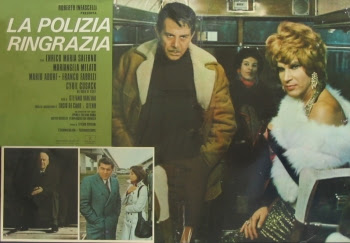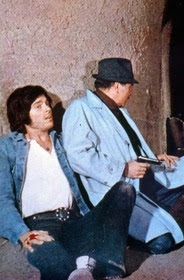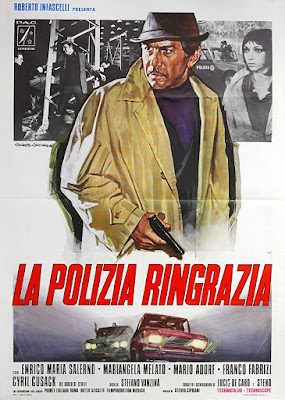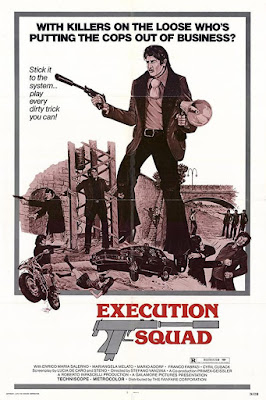One might wonder whether director Steno meant this
film to be pro police or anti police. Or pro fascism or anti-fascism. That
is partly what makes this Poliziottesco to be so intriguing. It was made
very early in the Italian Crime cycle of the 1970s and is considered by some
critics to be the film that kicked it off. It is different though in ways
to what followed. The main police protagonist is not an action figure like
the ones in later films but instead a middle aged cop who has worked his
way up the bureaucratic ladder to be Commissioner. An honest dedicated one
but who has become frustrated with the criminal system that the crooked and
corrupt can play like an instrument. Play the right strings and you are set
free. And though there is violence, there is very little action and no action
set pieces. But what it does have in common with later films is that it is
set in an environment in which the police seem helpless against a huge crime
wave that is overwhelming society.

Two punks on a motorcycle kill two people in an attempted robbery and they
escape from the police chase. The press mocks the cops and Commisioner Bertone
(Enrico Maria Salerno) heads the investigation. He tells his girlfriend/reporter
that everyone hates the police; the media, the people, the criminals, the
elites. They have no luck in finding the two killers, but eventually one
of them turns up. Executed. Then other crooks that the system could not deal
with.

This isn't one loan vigilante but a well funded organization. They
may have even infiltrated the police. They are doing what the police cannot.
Cleaning up. Terrifying the bad guys. Steno leaves it up to the viewer how
to feel about this. Bertone says to one person, "This is how fascism begins".
People begin to choose order over chaos. It can come in coups or in elections.
A strong man who promises order. Italy certainly understands that more than
most. Order always comes with a price though. In an ultimately dispiriting
film, Steno takes no sides.




